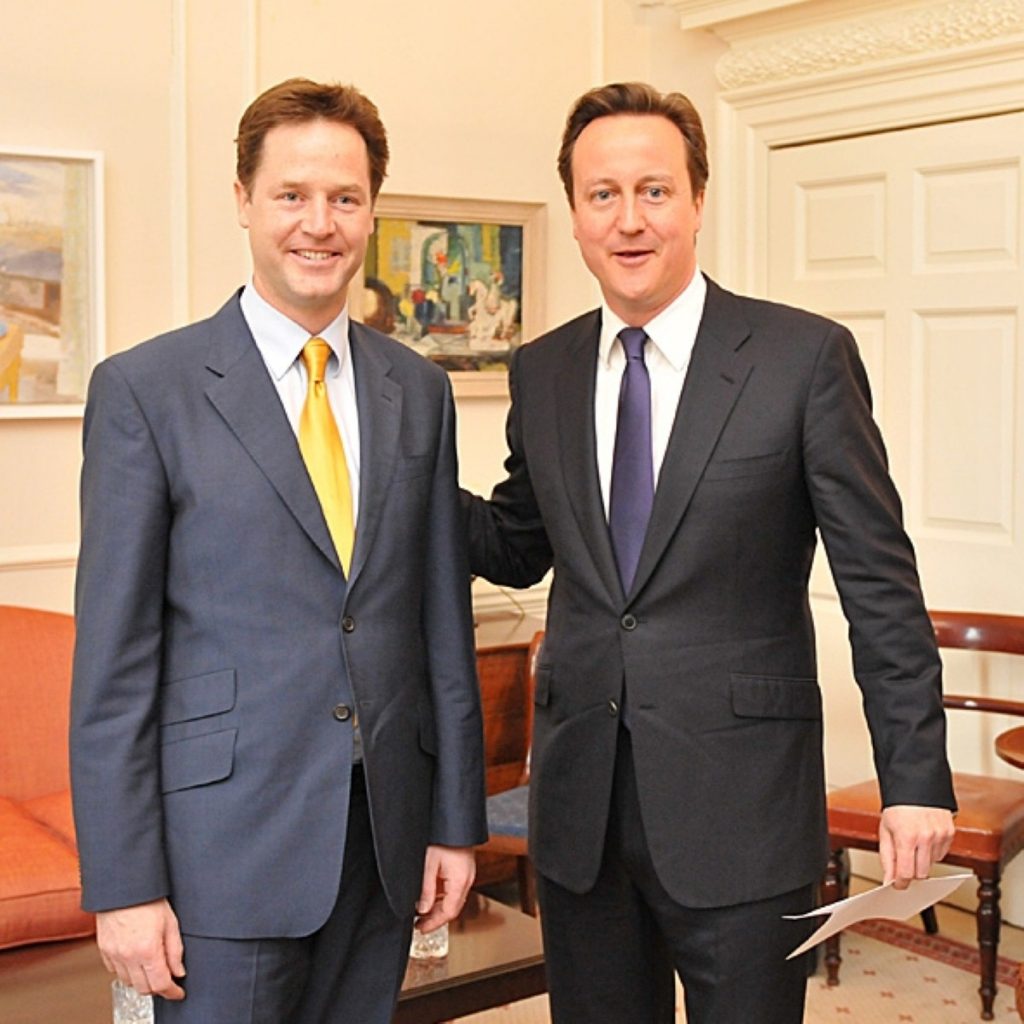Cameron-Clegg battle as AV campaign kicks off
By Hannah Brenton and Alex Stevenson
David Cameron and Nick Clegg are going head-to-head today, kicking off the campaign for and against the alternative vote (AV) with opposing speeches.
Mr Cameron and Mr Clegg have so far presented a united front to get the legislation through parliament. From today they are free to take a stand against one another, offering the unusual prospect of open division within the government on a major constitutional question facing Britain.
The prime minister will take the fight to his deputy today, giving a speech for the ‘no’ campaign in which he will argue that AV could have led to Gordon Brown continuing in No 10 after last year’s election.


In an openly partisan approach, Mr Cameron warned that the Conservative party would lose out if the alternative vote system was adopted.
“The simple fact is, AV could exaggerate the inherent biases in the current system, giving Labour an even bigger advantage than they already have at general elections,” he said in a speech in central London.
“Yes, our politics needs reform. Yes, we need to shift more power down across the country.
“But no to AV. It means a voting system that is unfair, processes that are unclear, and politics that is unaccountable. It is, put simply: the precise opposite of what we need right now.”
Earlier foreign secretary William Hague underlined those arguments. He told the Today programme: “It is the worst of all worlds. The trouble with the AV system is… it is likely to produce election results which are more indecisive or more disproportionate or even both at the same time, and be more complex and expensive to operate into the bargain.”
The referendum on AV was a key demand of Liberal Democrats in the coalition agreement. Over the coming months, Mr Clegg will be making the case for a change in the voting system.
He began that effort with a speech in Leeds, in which the Liberal Democrat leader
Unlike first past the post, there is no majority winner under AV. Second preference votes are redistributed as candidates with the least votes are eliminated until one candidate receives more than 50 percent of the overall vote.
In his speech today, Mr Clegg argued that the current system of first past the post is flawed, while a switch to AV will restore public trust in parliament.
“First past the post is out of date and it is at the heart of so many of the reasons that people don’t trust in or care about politics,” Mr Clegg said.
“It makes it easy for MPs to get complacent and lazy. First past the post is not working and it’s time to get rid of it.
“The alternative vote puts you back in charge. You get a bigger say in who your MP is. A bigger foothold in our democracy. A bigger stake in our country.
“The alternative vote is a simple change that will make a huge difference. It means MPs working harder, more voices being heard and power put back where it belongs – with you.”
The ‘yes’ campaign has rolled out a number of celebrity endorsements, including Eddie Izzard, Joanna Lumley, John Cleese and Colin Firth.
But Newsnight released a ComRes poll on Wednesday that showed both campaigns are on level footing with the public, tied on 41% of the vote each – with 18% undecided.
ComRes figures show support for the ‘yes’ campaign has dropped since the election in May. Some commentators have speculated that the growing unpopularity of Mr Clegg himself might have a negative effect.
“It’s not about any individual politician,” Mr Clegg insisted during the question-and-answer session in Leeds. He said the constitutional implications for the referendum would outlast his own political career many times over.
Speaking on the Today programme earlier, he added: “It’s a small change which will make a big difference… most people are represented by someone who most people didn’t vote for.
“So we have a real problem – people aren’t engaged enough in politics.”
The May 5th date for the referendum was only officially set on Wednesday night, after the Parliamentary Voting System and Constituencies Act was held up for weeks in the House of Lords.

